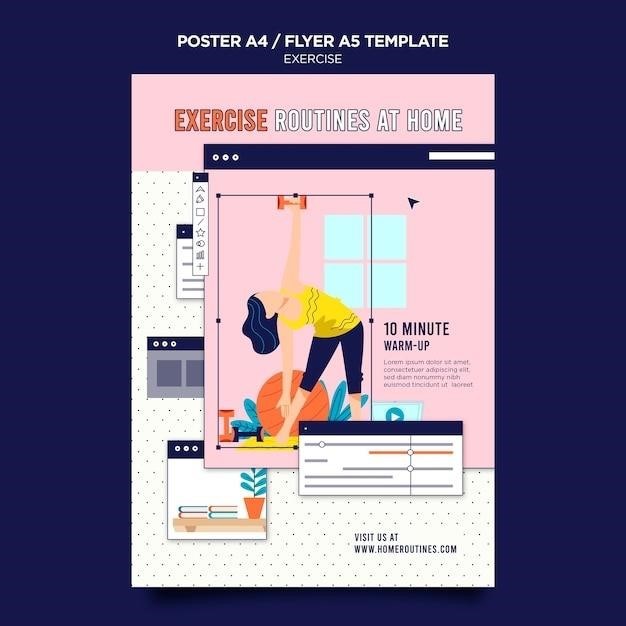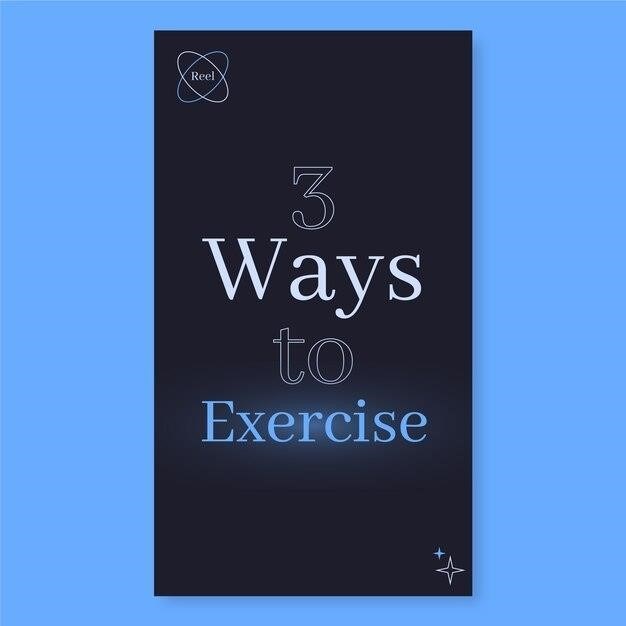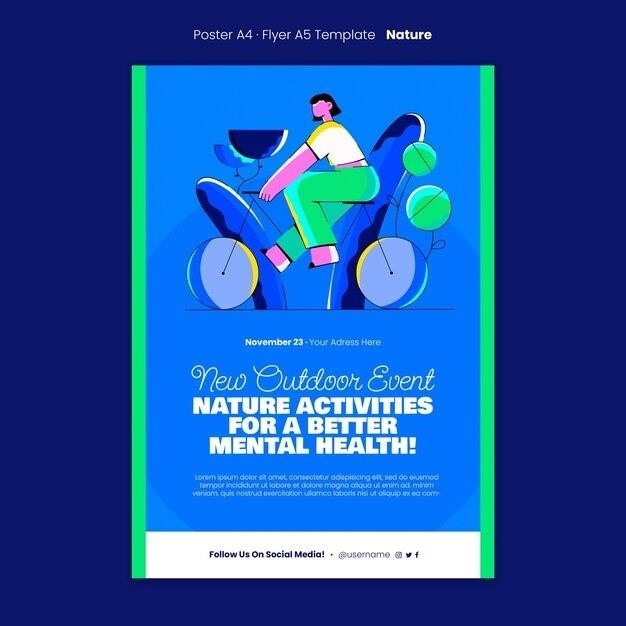
Finding Your Why⁚ A Comprehensive Guide
Unlock your life’s purpose with practical exercises and insightful worksheets. Discover your passions, identify recurring themes, and refine your personal mission statement. Gain clarity and validation through self-reflection and peer feedback, ultimately defining your major definite purpose. Downloadable PDFs are available for enhanced self-discovery.
Understanding Your Current Time Allocation
Before embarking on the journey of self-discovery and defining your “why,” it’s crucial to understand how you currently spend your time. A week-long time inventory, as suggested by productivity experts, offers invaluable insights. This exercise involves meticulously tracking every activity, from work and family commitments to leisure pursuits and even seemingly insignificant tasks. By meticulously documenting your daily schedule, you’ll gain a clearer picture of where your time is spent, identifying time-wasting activities and areas for improvement. This awareness is the first step toward reclaiming control of your time and aligning it with your purpose. The data collected helps identify patterns and recurring themes, revealing how much time is dedicated to activities that resonate with your values and those that don’t. This honest assessment of your current time allocation forms the foundation for effective time management and subsequent exercises in finding your purpose. Analyzing this data allows you to make informed decisions about reallocating your time to activities that truly matter, ultimately leading to a more fulfilling and purposeful life. This self-awareness paves the way for aligning your actions with your values and identifying activities that bring you joy and satisfaction, both essential elements in discovering your “why.”
The Power of Time Inventory Exercises
Time inventory exercises are powerful tools for self-discovery, offering a clear picture of how you spend your time and revealing hidden patterns. By tracking your activities for a week, you gain objective data about your daily routine, highlighting time spent on work, leisure, personal development, and other activities. This detailed record allows you to identify recurring themes and potential time drains, revealing areas where you could make more efficient use of your time. The process of reflecting on this data often unveils surprising insights, prompting introspection into your priorities and values. These exercises aren’t merely about time management; they’re about understanding your current habits and behaviors, which are fundamental to finding your purpose. By analyzing your time allocation, you can identify activities that bring you joy and fulfillment, and those that leave you feeling drained or uninspired. This awareness is critical in making conscious choices about how to spend your time, aligning your actions with your values and aspirations. The insights gained from a time inventory exercise provide a solid foundation for setting meaningful goals, making better use of your time, and ultimately discovering your “why.” This increased self-awareness is a crucial step towards living a more intentional and purposeful life.
Identifying Recurring Themes Through Writing Exercises
Writing exercises offer a potent method for unearthing recurring themes in your life, providing valuable clues to your underlying purpose. Freewriting, journaling, and other reflective writing techniques allow you to explore your thoughts and experiences without judgment, revealing patterns and insights often hidden beneath the surface. By consistently writing about your passions, values, and goals, you begin to identify recurring motifs – words, phrases, or ideas that appear repeatedly. These recurring themes often represent core values or deep-seated desires that are integral to your sense of purpose. The process of writing encourages introspection and self-discovery, leading to a deeper understanding of your motivations and aspirations. Through this process, seemingly disparate experiences may connect, revealing a larger, unifying theme that points towards your life’s purpose. These writing exercises act as a catalyst for self-reflection, helping you to identify and clarify what truly matters to you. The act of putting pen to paper (or fingers to keyboard) facilitates a process of self-discovery that can be transformative, helping you connect with your authentic self and uncover your unique “why.”
Refining Your Purpose Statement
Once you’ve identified recurring themes and gained clarity on your values and passions, it’s time to craft a concise and impactful purpose statement. This statement serves as a guiding principle, a North Star to navigate your life’s journey. Begin by summarizing your key insights from previous exercises. What are the core values consistently emerging? What passions ignite your soul? What impact do you wish to make on the world? Your purpose statement should reflect these fundamental elements. Keep it brief and memorable, ideally fitting within a single sentence. Avoid jargon and overly complex language; strive for clarity and authenticity. Iterate on your statement. Refine it, polish it, and test it out. Does it resonate with you? Does it inspire you? Does it accurately reflect your aspirations? Share your draft with trusted friends or mentors for feedback. Their perspectives can offer valuable insights and help you refine your statement to ensure it is both authentic and impactful. Remember, your purpose statement is a living document; it can evolve and adapt as you grow and learn.
Validating Your “Why” Through Peer Feedback
Seeking feedback from trusted peers is a crucial step in refining your understanding of your “why.” Sharing your purpose statement and reflections with others provides valuable external perspectives, challenging assumptions and highlighting blind spots. Choose individuals who know you well, offering honest and constructive criticism. Explain your process, outlining the exercises used to arrive at your current understanding. Ask for feedback on the clarity, authenticity, and impact of your purpose statement. Do they understand your “why”? Does it resonate with them? Do they see how it aligns with your actions and aspirations? Consider their suggestions, but ultimately, the final decision rests with you. Remember, this is your journey. Peer feedback serves as a valuable tool for refinement, not dictation. The goal is to ensure your purpose statement accurately reflects your deepest values and aspirations, and that it inspires and motivates you on your path.
Utilizing Worksheets for Self-Reflection
Structured worksheets offer a powerful tool for introspection, guiding you through a series of focused questions designed to unearth your deepest values, passions, and aspirations. Many readily available worksheets prompt reflection on past experiences, identifying recurring themes and patterns that illuminate your purpose. Some focus on visualizing your ideal future, prompting you to articulate your goals and desires. Others delve into your core values, helping you understand what truly matters to you. By thoughtfully completing these worksheets, you’ll gain a clearer understanding of your strengths, weaknesses, and motivations. The act of writing down your thoughts and feelings is itself a powerful exercise in self-discovery, facilitating a deeper connection with your inner self. The insights gained from these worksheets will provide valuable information to inform your purpose statement and overall life direction. Remember to choose worksheets that resonate with your personal style and learning preferences.
Exploring Your Past Passions and Interests
Reflecting on past passions and interests can illuminate your core values and inherent talents, offering valuable clues to your life’s purpose. Think back to your childhood – what activities consumed your time and energy? What subjects captivated your attention in school? What hobbies did you pursue with unwavering enthusiasm? These early passions often reflect innate abilities and deep-seated desires. Consider the activities that brought you joy and a sense of fulfillment, even if they were seemingly unrelated to your current career path. Analyzing these past experiences helps you identify recurring themes and patterns, revealing underlying motivations and desires. This retrospective exploration isn’t about dwelling on the past, but rather about extracting valuable insights that can inform your present and future decisions. By understanding your historical inclinations, you can better connect with your authentic self and align your current pursuits with your true purpose.
Connecting Your Purpose to a Larger Goal
Once you’ve identified your core purpose, consider how it aligns with a larger, more significant goal. This broader context adds depth and meaning to your personal mission. Ask yourself⁚ How can my purpose contribute to something bigger than myself? Does it align with my values and beliefs about the world? Perhaps your purpose involves helping others, contributing to your community, or making a positive impact on the environment. Connecting your purpose to a larger goal provides a sense of direction and purpose beyond personal fulfillment. It fuels your passion and motivates you to persevere through challenges. This expanded perspective can be incredibly powerful, transforming your individual aspirations into a meaningful contribution to society. By aligning your personal ambitions with a larger purpose, you create a more impactful and fulfilling life journey. This exercise encourages a sense of contribution and lasting legacy.
Defining Your Major Definite Purpose
After exploring your passions, values, and aspirations, it’s time to articulate your Major Definite Purpose (MDP). This isn’t simply a hobby or interest; it’s a clear, concise statement outlining your core life aim. Think of it as your North Star, guiding your decisions and actions. Brian Tracy emphasizes organizing all activities around this central purpose. Your MDP should be specific, measurable, achievable, relevant, and time-bound (SMART). For example, instead of “help people,” a stronger MDP might be “to mentor 100 young entrepreneurs within the next five years, empowering them to build sustainable businesses.” This focused approach provides clarity and direction. Regularly revisiting and refining your MDP ensures it remains aligned with your evolving self and circumstances. The process of defining your MDP is an ongoing journey of self-discovery and refinement, constantly adapting to your growth and experiences. This clarity provides the foundation for a fulfilling and meaningful life.

Identifying Moments of Peak Performance
Reflecting on past successes offers valuable insights into your strengths and passions; Identify moments when you felt truly engaged, energized, and fulfilled—times when you performed at your best, whether in a professional, personal, or volunteer setting. These peak experiences often reveal underlying motivations and values. Consider projects, scenarios, or situations where you, your team, or your organization shone brightly. What were the contributing factors? What skills did you utilize? What emotions did you experience? By analyzing these high-performance moments, you can identify recurring patterns and themes. These themes often provide clues to your core values and natural talents, guiding you toward activities that align with your purpose. The process of remembering and analyzing these experiences can be incredibly insightful, highlighting skills and passions you might not have consciously recognized before. This exercise helps clarify what truly fuels your passion and contributes to a sense of fulfillment.
The Importance of Serving Others
A powerful sense of purpose often stems from contributing to something larger than oneself. Consider how your skills and talents could benefit others. Reflect on experiences where you’ve helped someone, made a positive impact, or felt a deep sense of connection through service. These moments often highlight a profound aspect of our purpose. The most impactful purposes frequently involve serving a community, customers, or society at large. Think about causes you care deeply about, whether environmental protection, social justice, or animal welfare. Explore how your unique abilities could contribute to these causes. This exercise encourages a shift in perspective, moving beyond personal goals to encompass a broader sense of contribution. By focusing on how you can make a difference in the lives of others, you can uncover a deeper, more meaningful purpose that transcends individual aspirations and fosters a sense of belonging and fulfillment. Connecting your purpose to serving others often leads to a more sustainable and rewarding life journey.
Utilizing Journaling and Self-Questioning Techniques
Journaling and self-questioning are invaluable tools for unearthing your deepest motivations and aspirations. Regular journaling allows you to explore your thoughts and feelings without judgment, revealing patterns and insights you might otherwise miss. Start by setting aside dedicated time for reflection, perhaps first thing in the morning or before bed. Pose open-ended questions to yourself, such as⁚ “What truly excites me?”, “What problems do I feel compelled to solve?”, “What leaves me feeling most fulfilled?”. Don’t censor your responses; let your thoughts flow freely onto the page. Another effective technique involves exploring your values. Identify your core values – honesty, creativity, compassion, etc. – and reflect on how your actions align with them. Discrepancies may highlight areas needing attention or reveal potential pathways toward a more purpose-driven life. Combine journaling with focused self-questioning to create a powerful synergy of self-discovery. The process of writing and reflecting can unearth hidden desires and motivations, helping you to clarify your personal “why” and embark on a more meaningful life journey.
